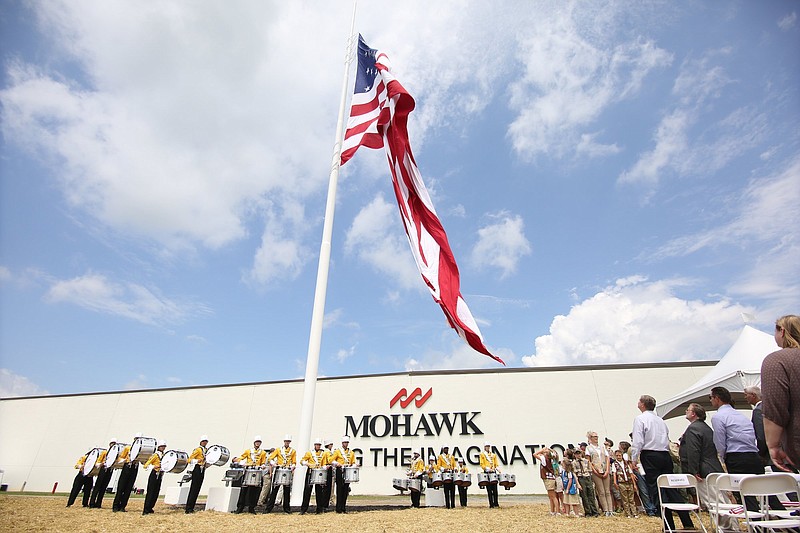Nine months after the U.S. government lifted tariffs on some Chinese-made luxury vinyl tiles, the trade tax reprieve ended this week and is likely to push up the price of one the fastest growing types of floor coverings.
The U.S. government is restoring the 25% tariff tax on China-made LVT products nine months after the tariffs were lifted last November to allow for a reconsideration of their impact. China is one of the major developers and suppliers of the popular vinyl tiles or planks that resemble hardwood floors and snap together during installation and the restoration of the tariffs is projected to again boost their price significantly.
"What we think is going to happen is, the reverse of what happened last year, and the industry will have to increase prices to cover the tariffs which would increase the value of our manufacturing as we go through," Jeff Lorberbaum, president and CEO of Mohawk Industries said Friday.
Mohawk, which produces LVT in the United States, pushed for the tariffs last year, which began at 10% and were later raised to 25% before the temporary suspension of all tariffs for nine months last November. But other floorcovering companies, including Shaw Industries, have argued against the tariffs because they fear it will hurt sales in one of the few growing sectors on the flooring industry if prices rise for consumers somewhere between 15 an 20% for such vinyl flooring.
Sales of carpet and flooring continue to lose market share to harder floor surfaces and the coronavirus pandemic has worsened the overall decline in floorcovering sales this year.
Mohawk, the world's biggest floorcovering manufacturer, reported a a 21% drop in second quarter sales and a net loss of $48 million, or 68 cents per share. The Dixie Group, Inc. said Thursday its sales in the second quarter fell by 39% from a year ago, swelling the company's operating losses to nearly $7 million, or 46 cents per share.
In response, Mohawk said it is planning to trim $120 million in costs and Dixie said it has already cut $14 million in costs and is looking to trim even more expenses.
Lorberbaum told industry analysts Friday that sales in July have rebounded from their spring lows and were comparable to a year ago.
"After the company's sales bottomed in April, our markets improved more than we expected, and shipments exceeded our production rates, reducing our inventories," he said.
But Lorberbaum said Mohawk's future remains uncertain due to the pandemic.
In a regulatory filing released Friday. Mohawk Industries also said it has completed an internal audit into charges against the company that it improperly inflated revenues and made false statements about its sales from April 2017 to July 2019.
Mohawk said it is fully cooperating with a government probe into alleged securities violations and declined to discuss or reveal the audit findings. But in its quarterly earnings report, Mohawk said "the company intends to vigorously defend against the claim" of wrongdoing and Mohawk is not booking any extra funds for any settlement.
Mohawk officials declined to discuss the ongoing investigation by the U.S. Securities and Exchange Commission into the company's reports or the subpoenas given to top officials as part of the probe.
Mohawk is facing a class action complaint filed by the Public Employees' Retirement System of Mississippi alleging a "fraudulent scheme to fabricate revenues through fictitious 'sales' of products."
The suit said the products weren't delivered to customers and the intent was to conceal from investors the true reasons for the company's ballooning inventory.
"When the truth was finally revealed to investors through a series of partial disclosures beginning in July 2018, the price of Mohawk common stock plunged, wiping out $7.4 billion in shareholder value," the lawsuit said.
Contact Dave Flessner at dflessner@timesfreepress.com or at 757-6340.
